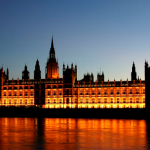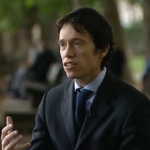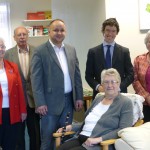constitutional reform
Good policies start from what is here, now; from what people are demanding; and from what we can do. Bad policies start from what ought to be present, what people ought to want, and what we ought to achieve. Thus a good decision, on how many sheep to keep on a fell, draws on an individual farmer’s understanding of his own hillside. Bad decisions on farming and the environment are made two hundred miles away on the basis of a mathematical model. We all – teachers, communities, employees – recognise this problem in our daily lives. But the modern age is still hypnotized by grand theory, produced in isolation: nowhere is this more dramatic than in constitutions.
Constitutions, which were once a precious, slow-formed, historical legacy, or the fierce enterprise of freedom-fighters, can now be downloaded from a website, and tailored to any country with a ten second ‘replace all.’ And the West, recognising the efficiency of this standardised product, is making a business of exporting it. Our consultants rush, at a thousand dollars a day, to lecture Kenya on governance, and Egypt on democracy; to bring constitutions to Iraq, and elections to Afghanistan. Their legal theory and delicate drafting do not convince foreigners to love their government; their carefully tailored electoral systems cannot prevent corruption, abuse, or even civil war. But they are so excited by their discovery, they want to give us a dose of their medicine by turning the House of Lords into an elected senate.
Why? Not because of unhappiness with its functions, its performance, its membership, or its reputation. In fact, the Minister who introduced the reforms insisted that the functions will remain unchanged, the performance has been admirable, the contribution immense and the House still held in high-regard. Nor is this driven by public pressure. The public is not angry with it: they are angry with the House of Commons. And they have a hundred priorities more pressing than this. But the reformers feel the Lords cannot be ‘legitimate’ until it is elected.
I don’t understand this. The Lords may look like a mirror of the Commons: they walk on red carpets, we walk on green; they sit on red benches, we on green; they too have a Speaker and Ministers; and we debate the same legislation. But in reality the Lords has the same relationship to the House of Commons, as a library has to a book-shop: the contents may be similar but the purpose is quite different. Even its name – the “House of Lords” is misleading – it has not exercised equal powers with the other House for many centuries and is not dominated by hereditary nobles. It consists mostly of older people who have retired from successful careers: not just Ministers, but farmers, businesspeople, teachers, professors and policemen.
These people are the best part of the institution. But many of them would not want to stand for election: we do not have ex-Generals or High Court Judges in the House of Commons. Elected politicians are a different and, in most people’s view, not a better group. Because the Lords are in for life, they are independent: no longer beholden to the system, no longer anxious about colleagues, or professional prospects; and, therefore, not afraid to challenge government policy. In the last parliament they defended justice and liberty against the government’s terrorism legislation. In this parliament its members have mounted some of the best criticism of our foreign policy. In a world where more and more emphasis is put on energetic youth, they are experienced and – to use an unfashionable word – wise.
This does not mean that nothing can be improved: as Lord Steel has argued, the appointments process should be more transparent, representative and non-political. But more profound changes, such as elections, would remove its best people and distort the relationship with the lower House. (Britain is not a federal system, so the new House would have to be elected on a variant of the Commons’ numerical system, and therefore duplicate and challenge the mandate of the Commons).
Constitutional reform should always be driven by real urgent problems, engaging the whole nation. It should lay bare what a government is, force people to explain and justify what they want the new structures to do. Only then can you produce a constitution, which is owned and loved by the nation. The American revolution drove the Founding Fathers to debate with passion, patience and erudition, every article in their constitution: and in some cases to die for it. As a result, the US constitution is still treated almost as a religious text. The British constitution has emerged in a different fashion, and we express our attachment to it in less American ways. But I can think of nothing which has served us so well. To change such a fundamental element of our political structure, when there is no crisis that demands it, when the public is indifferent, and the policy-makers uninterested, is uncalled for. Such an unfocused reform, detached from the urgent questions and from the nation, will not create the trust, which is the only real foundation of ‘legitimacy.’















